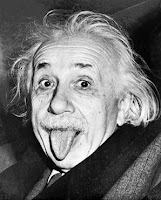
Did you ever hear the phrase “when the student is ready the teacher will appear?” Well, that’s what happened with Louise Hays’ book, Experience Your Good Now! Learning to Use Affirmations.
I received an advance copy of Louise’s book in April from its publisher, Hay House, Inc. Being part of the Hay House Bloggers Review Marketing team I was supposed to review the book and blog about it at the release of the book in May. For reasons to numerous and lame to list here I was remiss in my duties and failed to read the book and post my review. I thought I missed the boat.
Last week the book’s colorful aqua-green cover caught my attention on my bookshelf and I decided to open the little gem and take a gander. 90 minutes later I was so glad I did.
As simple and easy it is to read, this is a powerhouse of a book. Don’t be fooled by its non-intimidating, slim appearance. Ms. Hays, in her elegant 76-year old dialect, explains why we all have negative chatter in our heads. She then proceeds to take various topics such as health, fear, forgiveness, love and the workplace and describes how many people focus on the negative aspects of situations which, via the Law of Attraction, only brings more of that unwanted stuff to us. Louise then goes a step further and gives us Affirmations to undo the unwanted matter and keep it away forever.
What’s interesting is I also discovered that there’s a CD in the back of the book. The audio contains the author reading the book and adding some additional flavor to the content. The audio potion is only one hour and fifteen minutes in length. For some people that is just one round trip commute to work. How easy it that?
I have always subscribed to the school of thought that alleged that affirmations were hokey. I imagined that if I plainly said over and over again, "I will think positive every day and make a new way," nothing would actually change. Ms. Hays clearly states that we are always saying’ something and that something is what becomes our reality. No truer words were ever spoken. For example, an affirmation I always used to make, just in passing was, “You can’t have everything!” Louise would say why not? So I got to thinking, the reason why not is only because I said it; I claimed that reality so that is my life's situation.
So now I go around saying, “I love having everything.” I figure what the heck? If I feel I have to say something anyway, why not make it something with a positive twist? Hey, if it works, great for me! If it doesn’t, nothing lost - I was going to say something anyway.
I deeply believe that everything happens for a reason and perhaps my missing the opportunity in May to promote Louise Hays’ new release now gives me the opportunity to promote it for the Holiday season. I strongly suggest that you go to the Hay House web site and order two copies for the holidays – one for you and one for someone you love. By the way, I love having everything!
Buy the book here: http://www.hayhouse.com/details.php?id=4846
.jpg)


